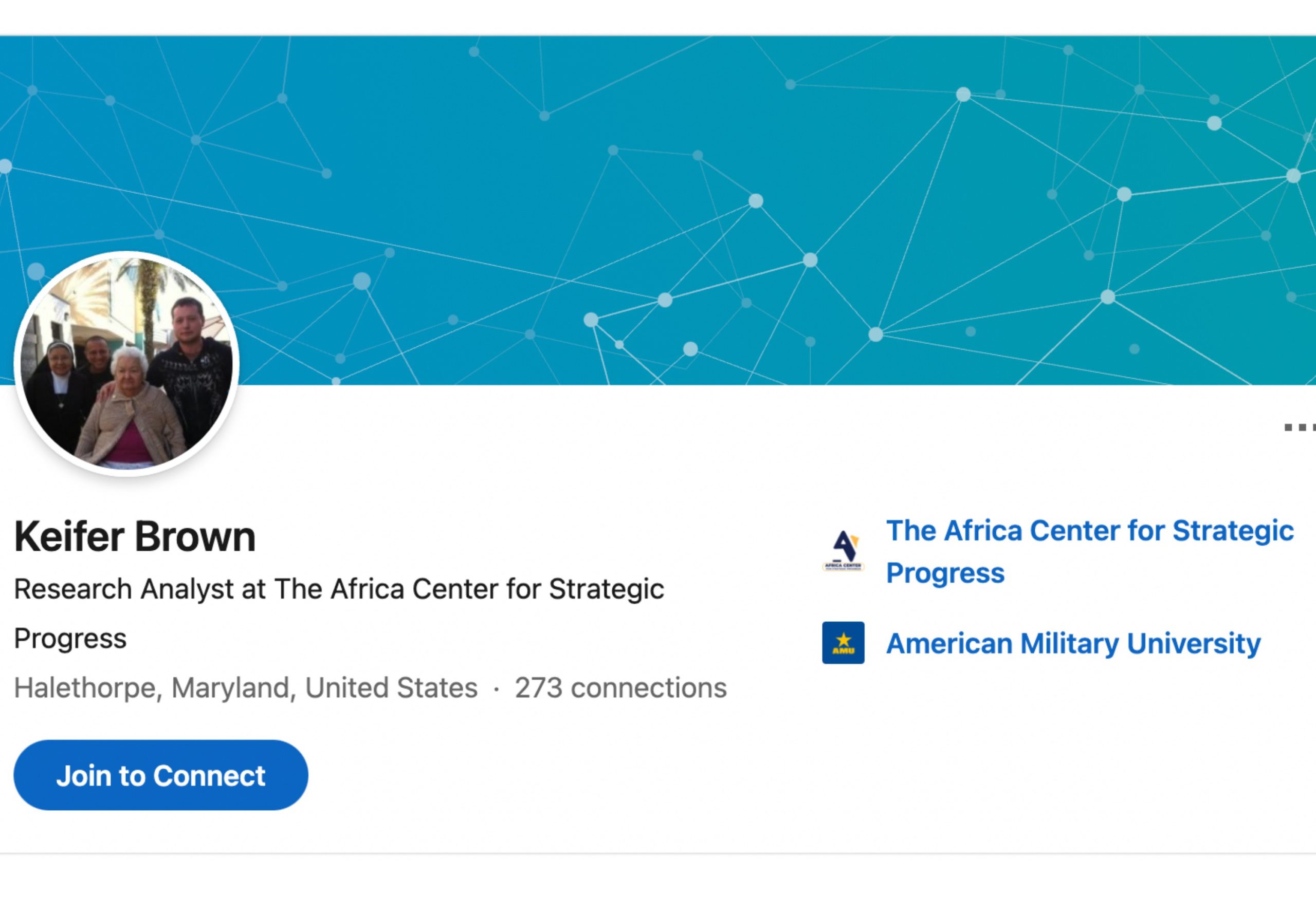Research and analysis play a crucial role in humanitarian efforts, providing reliable information on which nations can base policy and the distribution of resources. Keifer Brown is a research analyst with the Africa Center for Strategic Progress and spoke with us about how US and European influences can drastically affect the extent and effectiveness of humanitarian efforts.
Brown has a master’s degree in international relations and conflict diplomacy from the American Military University and has worked with several organizations focused on migration and refugees. His lines of study and work were chosen because he wanted a broader experience and a less US-centric worldview.
Keifer Brown told us that he “Felt like this path would give a much greater sense as to what is happening worldwide, rather than looking at it from the narrow scope of just US interests.” However, the influence of the US seems to be unavoidable.
Humanitarian efforts of all kinds, including research analysis, rely on funding that comes largely from the US and Europe. While there are other funding sources from other nations and private individuals, these are often not enough for major efforts.
The decision to allocate funding for specific organizations or efforts is inherently political, being made by policymakers in the US. With this comes the consideration of US efforts. Many of these decisions are based more on their impact on US interests and soft power projection than the need for aid.
Keifer Brown explained to us that, “If the United States is funding a humanitarian operation abroad, that funding often comes with strings attached or an implicit understanding of the growth of US foreign influence.”
When an operation doesn’t coincide with US or European interests, funding can be more difficult to secure. This contributes to a large need for volunteers and unpaid internships in humanitarian fields. Being unable to provide for themselves through their work presents a barrier to entry for many who would readily participate in ongoing humanitarian efforts.
Brown himself has taken part in unpaid internships in the past, working with the International Rescue Committee. He told us that his work helping refugees and asylees transition to and find work in the United States was a great experience, but that there are certainly many out there who would have been unable to take the role due to financial considerations.
US influence is seen as the largest single impact factor worldwide, but the influence of European nations is of more note in the ongoing Central Mediterranean migration. Here, it is the policies of key European nations that often dictate the extent of humanitarian aid that reaches the region.
The international relations between European countries like Italy, Malta, and Greece and countries like Tunisia, Libya, and Algeria, define policies towards these migrants. Much of the funding into direct humanitarian aid and research efforts rely on the current political leanings towards these migrants and their status.
While Keifer Brown tells us that his current work and plans for the future stem from a desire to help, he finds that so much of his abilities and opportunities to do so depend on US and European interests that shift frequently.
Having essential humanitarian efforts rely on these whims presents a considerable risk for the safety and human rights of migrants and refugees.
This is a Contributor Post. Opinions expressed here are opinions of the Contributor. Influencive does not endorse or review brands mentioned; does not and cannot investigate relationships with brands, products, and people mentioned and is up to the Contributor to disclose. Contributors, amongst other accounts and articles may be professional fee-based.

